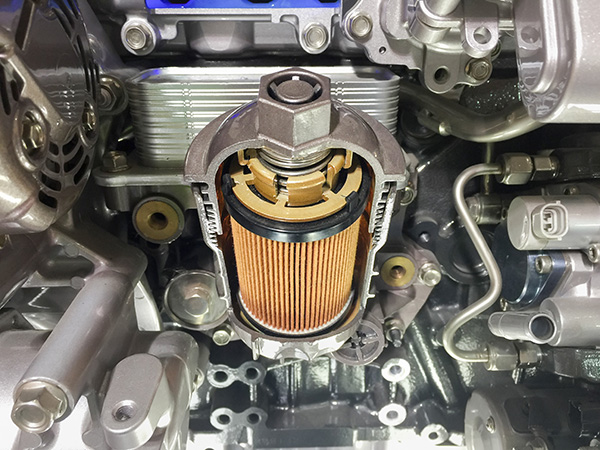
Your car's fuel filter might not be the first thing that comes to mind when thinking about vehicle maintenance. Still, it keeps your engine running by filtering out contaminants like dirt, rust, and debris from the fuel before they enter your engine, and the fuel filter protects your vehicle from potential damage. It keeps your engine performing at its best. But how often should you replace it? Knowing when to replace your fuel filter can help you avoid engine trouble and maintain your car’s efficiency.
What Does a Fuel Filter Do?
Your car’s fuel filter acts as a barrier that prevents dirt and debris from entering the engine. Over time, contaminants can build up in your fuel tank, and without a functioning filter, these particles could clog your engine or injectors, leading to poor performance or even serious engine damage. The fuel filter’s job is to keep your fuel as clean as possible, which is essential for your car’s overall health.
Factors That Affect Fuel Filter Longevity
While general guidelines exist, the frequency with which you need to replace your fuel filter can depend on several factors, including:
The Type of Vehicle You Drive
Different makes and models have varying fuel filter requirements. Some cars may need more frequent replacements, while others may have filters designed to last longer.
Driving Conditions
If you frequently drive in dusty or polluted environments, your fuel filter may become clogged faster, necessitating more frequent replacements.
Fuel Quality
The quality of fuel you use also plays a significant role. If you often fill up at gas stations with lower-quality fuel or stations with dirty tanks, your filter may need replacing sooner.
General Guidelines for Replacing Your Fuel Filter
For most vehicles, it's recommended to replace the fuel filter every 20,000 to 40,000 miles. However, this range can vary based on the factors mentioned above and your car’s manufacturer guidelines. Some vehicles may come equipped with lifetime fuel filters, which can theoretically last as long as the car does. However, even with a lifetime filter, routine checks during maintenance visits are still essential to ensure the filter is working correctly.
Older vehicles or cars with high mileage may also require more frequent fuel filter replacements, especially if they’re driven in conditions that accelerate wear and tear. Always consult your car’s owner manual to see the manufacturer’s specific recommendation for fuel filter replacement.
Warning Signs That You Need to Replace Your Fuel Filter
Even if you haven't hit the recommended mileage for a replacement, there are several warning signs to watch for that may indicate it's time to change your fuel filter. Ignoring these signs can lead to poor fuel efficiency and potential engine damage. Keep an eye out for:
- Difficulty Starting the Car: If your fuel filter is clogged, it may be hard for fuel to reach the engine, leading to difficulty starting your vehicle.
- Stalling: A clogged fuel filter can prevent a steady flow of fuel, causing your car to stall, particularly at low speeds.
- Poor Acceleration: If you notice your car hesitating or sputtering when you try to accelerate, a clogged filter could be limiting the fuel flow to your engine.
- Decreased Fuel Efficiency: A clogged filter can make your engine work harder, which in turn uses more fuel. If you notice a sudden drop in your car's fuel economy, it could be a sign that the fuel filter needs to be replaced.
- Check Engine Light: In some cases, a failing fuel filter can trigger your check engine light. If the light comes on, it's essential to have your vehicle checked as soon as possible to determine the underlying issue.
Can You Replace the Fuel Filter Yourself?
While some car maintenance tasks can be done by yourself, replacing a fuel filter is not the easiest DIY task, depending on your vehicle’s make and model. In some cars, the fuel filter is easily accessible, while in most, it requires specialized tools or involves disconnecting the fuel lines, which can be risky if not done correctly.
If you're comfortable handling the task and have the necessary tools, make sure to relieve the fuel system pressure before you start, as the fuel lines will likely still contain pressurized fuel. However, if you're unsure or not mechanically inclined, it's best to leave this job to professionals who can safely and correctly replace the fuel filter for you.
Benefits of Regular Fuel Filter Replacement
- Improved Engine Performance: A clean fuel filter ensures that your engine is receiving clean fuel, improving your vehicle’s overall performance and efficiency.
- Extended Engine Life: By preventing contaminants from entering your engine, you reduce the risk of damage, which can help extend the life of your car’s engine.
- Better Fuel Efficiency: A clogged fuel filter forces your engine to work harder, which burns more fuel. Replacing the filter helps maintain optimal fuel efficiency.
- Prevent Costly Repairs: By replacing the filter at the right intervals, you can avoid more severe issues down the line, such as clogged injectors or engine failure, which could lead to costly repairs.
Ready to replace your car’s fuel filter? Let the experts at Paul’s Automotive take care of it. Give us a call or book an appointment online!